Beat - Interview
by Paul Waller
published: 31 / 7 / 2013
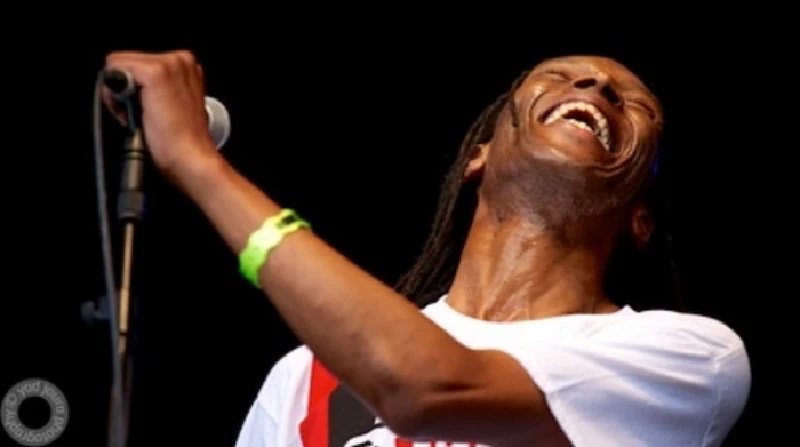
intro
Paul Waller chats to vocalist Ranking Roger about his reformed 80's ska/reggae group the Beat and their 1981 second album 'Wha'ppen?'which has just been re-released on vinyl
Birmingham born and raised, Ranking Roger (birth name Roger Charlery) fell in love with the punk scene in his teens. It was a path that led him to joining punk ska pioneers the Beat in the late 1970s. By 1980 the band had released their debut LP in 'I Just Can't Stop It', and had began a three year reign that would see them scale the heights of the pop charts and also find success in the USA. After the perfunctory 1983 compilation, 'What Is Beat?' Ranking Roger found himself having more success with General Public, and in more recent times he joined a 90's formation of Big Audio Dynamite. He, however, keeps the Beat's flag flying to this day. In fact in June his band made two successful appearances at the Glastonbury music festival. Pennyblackmusic caught up with Ranking Roger after these shows to find out how he felt they went for him, to talk about the new vinyl only Demon Records re-release of the band's 1981 sophomore LP 'Wha'ppen?' and to find out how he is finding his place in a band where he is now the sole original member left in it. PB: Let's kick off with your two Glastonbury performances. For those stuck at home we were bombarded with just about everything that went on, except for the Beat. RR: Yeah, I know that the BBC filmed the first one which was at Left Field but the best one was the second one, the one we did at the William Green field or whatever it's called. That one was an absolute knockout. It knocked the crowd out. You could tell they wanted more and you could tell that they loved it; it was like a proper Beat gig. The Left Field one was a bit weird, but they have filmed it and I think they are going to edit it together and to show it as a highlights thing. Glastonbury is always a pleasure to play, I mean just being there is something else but to be asked to play is an honour. I can't knock it because you are playing to people who have never seen you before. If you're good you can grab a new audience too, and our fans that are already there will always come and see us because they know they are going to get a whacking show. You have to be there to experience it though; there is that vibe between us and the audience that you can't explain. You can't catch it on film either. You have to be there. There is something there that is positive and really good for the audience. They always leave sweating, and most importantly they leave with happy smiles on their faces. PB: How did you swing it to play twice? RR: We could have played three or four times. Every year when we play Glastonbury we play three or four different stages because not everyone can see you when there is so much going on. You are always going to clash with something, so it's always good to do more than one. Everyone gets to see you then, and if they want to see you again then they can. You just do a different set. PB: From interviews I have seen or read before with you, you sound as down to earth as anyone in the music business could ever be. RR: It's all positive. People soon get to realise that I am grounded and down to earth, and that pop star rubbish is just pop star rubbish. You are what you are. We are all human and we are all equal. Me being grounded and able to talk to anyone means that people love to interview me because I am very open and very flexible with my answers. PB: Do you think that comes from your past as a punk? You have this punk spirit. The Beat are most often affiliated with ska, but there is a definite punk backbone there. RR: That's right, I started off as a punk rocker and my first job in a band was playing drums,and the first gig that we ever did had the Beat opening up for us as our support band. I soon joined them and became their front man and it went from there, but I still have that slight punk edge or streak within me and I still listen to it. I love every kind of music as long as it's rhythmic and melodic,and I thought that punk was. PB: It must have been tough growing up as a punk in Birmingham? RR: Oh yeah, it was difficult. There was not that many black punks, I think there were, welll I can count us on one hand. There were only four of us around Birmingham,and we used to meet at a pub in town called The Crown in around 1978. I was still in school but I used to get away with it. I would go to the school discos and that is where it all started for me. I used to pick up the mic and MC over the top of punk tunes in a Jamaican accent,saying good things about the Sex Pistols and the Clash. The punks loved me. It was brilliant. Meanwhile in the papers they had pictures of punks with safety pins through their noses and they said that this was doom for our kids but I thought they were a real nice bunch of people, really friendly. PB: Punk has always been documented as being very accepting of reggae and black people and their culture. RR: Well, not always. That happened after Johnny Rotten spoke to Radio Four in an interview. and said that all punks should really be listening to reggae music as well because they are saying the same thing that we are saying, repression and depression. It's poor people's music. Punk or reggae is roots music which comes from the ground up, and that's why it's so hard because usually there is a message of truth within it all. I think there is a real lack of this with today's music; people should be singing about real things. Why should every song be another love song? PB: Was it a no brainer when you initially joined the Beat or were you torn between them and the band that you were in at the time? RR: I was torn, yeah. You know I potentially had the chance to join UB40 because they were both from Birmingham. What a choice, eh? They weren't big at the time; The Beat and UB40 were both unknown and they were both doing local pubs, but when I analysed it in my head something was just saying to me that I should go for the Beat because the dynamics of the music was far greater. UB40 were good, but I saw them as sort of a space age reggae band with both the guitars and the keyboards being phased. It was almost like a Lee Perry sound. I thought they were a great version of English reggae and they executed that perfectly. The Beat had more going for them though; they had more styles in the songs ranging from reggae to punk then from that to a song that sounded a bit soul-ish. God knows what it was; they did so many different styles mixed together, and there were catchy guitars going on and that bass was so awkward. You know, when I first met the Beat's band members I thought they were aliens from a different planet because to me they didn't look human. In a way it was weird because nobody really knew each other. I think Andy Cox and Dave Wakeling knew each other from college, but for the rest of us it was like we were just placed in the room and told, "Right, go and make something decent." So we did. We ended up touring with the Clash, the Police, Talking Heads, the Pretenders and R.E.M. used to open up for us, Even U2 opened up for us once. PB: That's just incredible. RR: It's amazing our history when you think about it. I am kind of proud of it without being boastful because I just see it as a great experience that I've had. PB: The success of the Beat's debut album with 'I Just Can't Stop It' was nothing short of phenomenal, and these supports are of course completely justified simply on the back of that. Was the change from being a local working band to pop stars overwhelming or did you get some time to reflect? RR: I did get swept up in it in the end, but I always remembered my roots and where I came from and the people that I knew before all this started. I always thought that they are your true friends, and I would always tell them if you see me stepping out of hand and getting all boasty boasty then pull me back, but it never happened. I've always been aware of my surroundings, and all that glam and glory I would just pay no attention to. I would pay attention to the real things in life. That philosophy has kept me the way I am. I can only be true and I can't live this false pop star life that you are supposed to live, it's impossible. Nothing lasts for ever so sooner or later it'll catch up on you. You wouldn't be able to afford the lifestyle or you'd go on like a diva, and all your people would walk away from you eventually. It's best just to be yourself; you'll always be in touch with reality that way. People that come to our shows are always surprised at how approachable we are. People like Mick Jagger and Sting and Paul McCartney have all got the same kind of attitude. I'm not saying that I am like them. I'm just saying I've looked at them and seen how they are as people, and they are very real. You'd be surprised if you sat in a room with one of them. David Bowie is the same. He's so down to earth and grounded, and yet he's sold millions and millions of records. PB: Even when certain elements of the press have dug for dirt regarding the breakup of the Beat you never come across as bitter about how things went down. You seem very philosophical about everything. RR: With any separation there is always going to be a little bit of bitterness, but just like when someone dies it's always better to remember the good things about them. It's a bit like that with music. I can only be positive about it. If I have anything negative to say, then I don't. I'd rather say nothing unless it was something so important that everyone should know. PB: The second Beat album 'Wha'ppen?' is getting a shiny new re-release on the Demon Records imprint shortly; you have to be proud of that one? JJ: Oh yeah, and I tell you what. It's the real thing, I can't remember the code of it, but it is the one all the DJs like. I've also got something on Pledgemusic.com. If you go on there and type in Ranking Roger, you'll find it. It's a project I have going on with loads of collaborations that I have done with different people over the years. There is a whole bunch of stuff. It's quite interesting and people may well be interested in that too. PB: And there is more coming out soon isn't there, this time with your son? RR: Well there will be another project and we call it Dread-I. People shouldn't get it confused with 'Return of the Jedi' because it's called 'Return of the Dread-I'. It's a bit like me saying I'm back in a kind of way. It's not the end of the Beat. It's just me and Ranking Jr. also known as Murphy. We would just like to try some other things as father and son that don't necessarily fit into the Beat pattern of things. Then as time goes on we will come back and do the Beat again. It's definitely dance music, but there are some psychedelics in there. It'll be different because there will be drum and bass as well as dub and pop, a big mix. PB: The Beat doesn't play all that often down in the south-east of England in my neck of the woods. It makes a Beat show a bit more of an event. RR: You'd be surprised the amount we tour the UK. Well, they are not tours because we usually play during the weekends; it's more like a couple of gigs here and a couple of gigs there. We like to spread it out. We don't go somewhere we've already been for another eight months or a year, and because of this we have slowly built a following again around the country. There are a lot of places to play, and a lot of people want to hear this music so people will travel far to come and see us which I still find fascinating which gives me the edge, I mean it makes me want to travel four hundred miles to do a gig like when we do gigs in Scotland, for instance. I don't mind at all because people really respect that you have come that far to play for them. PB: I read this quote from you recently where you said that you thought the New Romantic movement killed ska? RR: I do indeed. I think that at the end of Two-Tone it turned from a movement into a fashion, and that fashion was more important than what all the tunes were all about. It seemed if you donned a tonic suit and put on a pork pie hat then you were Two-Tone. The fashion became the big thing, and then the New Romantics came in with their scarfs flipped over their shoulders, and I noticed a lot of people move from our scene into that one. There was a lot of following fashions. It was a bit weird. That's when we went to America and started doing stuff with the Clash and the Police. We got big over there and then a couple of years later we came back with 'I Can't Get Used to Losing You' which was our last hit which was from our first album, believe it or not. It got to number three and then the band split up, and out of that came General Public and the Fine Young Cannibals, so there is history there but all in all I wish that the original line up didn't split up but people had to go out and be adventurous. That's what we do as musicians. We learn. That's how we get greater. PB: What are your memories from touring with the likes of the Clash? RR: What I remember most with the Clash was the fact that it was so hard to get into their dressing rooms. I was always in there though. They would be like "Rog, come in, come here," but they were a very private band and they didn't like outsiders that much, and they had a lot of protection around them, a lot of people, but once they went on stage and started performing all the great glory came out. It was amazing. I got to love them more than their records. Live it was just something else to watch. It was just insane. They used to give the audience so much night after night; they just went out on stage and gave it all they could. You would see the three of them right up to the front of the stage with their guitars, and it looked really good. Looking at it from the audience they just looked enormous; these are the things I will never forget. Hanging out with them was something else, I realised quickly that those guys were not as aggressive as people made them out to be. Yeah, the Clash did argue a lot, but they were always nice to me and I went out on stage with them every night. It was either me or Mikey Dread that would go out and MC with them, either me or him or both of us. We were really good mates with them. Mick Jones ended up joining General Public in the end, and a few years ago I was with him in Big Audio Dynamite, so we sort of repaid favours to each other and we have tried to stay friends so 'nuff respect. Sting is another person who really blew me away just with his manners and antics. He is a very, very kind person, and I have nothing bad to say about him either. PB: This was during the Police days, right? RR: Yeah, and after as well. He invited me to do some stuff with him and I've been on television with him doing 'This Bed's Too Big Without You' on 'The White Room'. I think it was on Channel Four a few years ago. I had to go down to his place ,and actually rehearse in his rehearsal room, I really got well looked after. I mean five star treatment. As I say, he never forgot. He still loves the music and anytime he can he'll give me an opening slot with him. PB: Any last things you would like to say? RR: With all that has happened to me, I should have my head in the clouds, but I haven't because I know I still have my work and that is getting the message of peace, love and unity to the people. As crazy and hippy-ish as it sounds, it's what I've spent all my life doing. All my life I have been trying to promote these anti-war songs because the world would be a better place without it. These things can be reasoned and there are solutions, better solutions than what I see going on in the world today every time I switch the news on. PB: Thank you.
Band Links:-
http://englishbeat.net/https://www.facebook.com/EnglishBeatFans
https://twitter.com/theenglishbeat
Picture Gallery:-
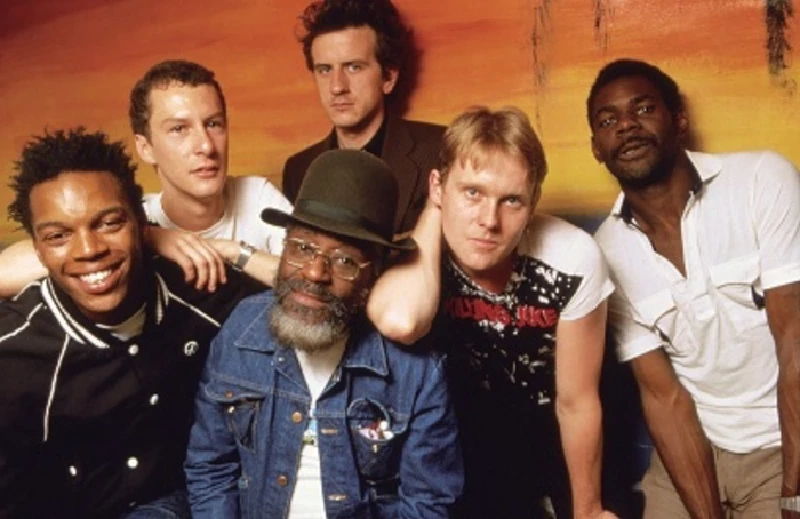
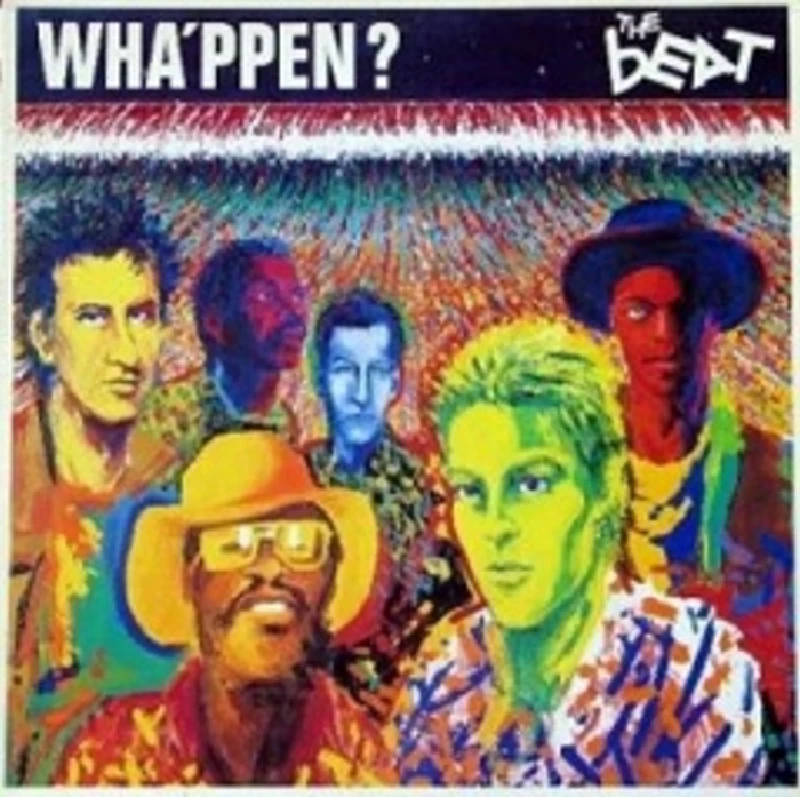
interviews |
|
Interview with Dave Wakeling (2023) |
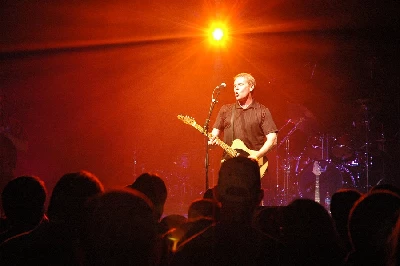
|
| Frontman Dave Wakeling talks to Eoghan Lyng about The Beat's political as well as his musical influences and his group's forthcoming British tour. |
| Interview (2020) |
reviews |
|
Bounce (2016) |
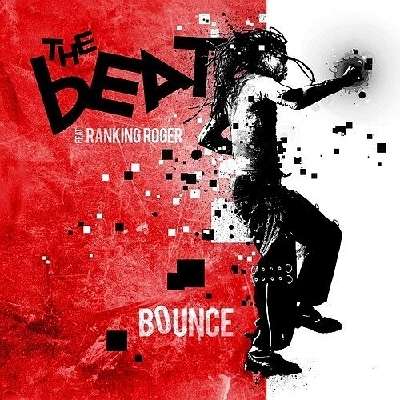
|
| Uninspiring first album in thirty years from influential 80's ska group the Beat |
most viewed articles
current edition
Carl Ewens - David Bowie 1964 to 1982 On Track: Every Album, Every SongArmory Show - Interview with Richard Jobson
Colin Blunstone - Thalia Hall, Chicago, 16/7/2025
John McKay - Interview
Visor Fest - Valencia, Spain, 26/9/2025...27/9/2025
Bathers - Photoscapes 1
Billie Eilish - O2 Arena, London, 10/7/2025
Loft - Interview
Robert Forster - Interview
Sir Tim Rice - Interview
previous editions
Heavenly - P.U.N.K. Girl EPManic Street Preachers - (Gig of a Lifetime) Millennium Stadium, Cardiff, December 1999
Beautiful South - Ten Songs That Made Me Love...
Oasis - Oasis, Earl's Court, London, 1995
Coldplay - Wembley Arena. London, 16/8/2022
Peter Perrett - In Dreams Begin Responsibilities Interview Part One
Prolapse - Interview
Boomtown Rats - Ten Songs That Made Me Love....
Trudie Myerscough-Harris - Interview
Pixies - Ten Songs That Made Me Love...
most viewed reviews
current edition
Sick Man of Europe - The Sick Man of EuropeDavey Woodward - Mumbo in the Jumbo
Amy Macdonald - Is This What You've Been Waiting For?
Lucy Spraggan - Other Sides of the Moon
Phew, Erika Kobayashi,, Dieter Moebius - Radium Girls
Suzanne Vega - Flying With Angels
Bush - I Beat Loneliness
Blueboy - 2
Alice Cooper - The Revenge of Alice Cooper
Cynthia Erivo - I Forgive You
related articles |
|
: Interview (2023 |
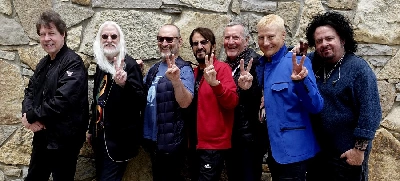
|
| Lisa Torem finds that a press event held during a rehearsal break reveals the true spirit of the All-Starr Band, helmed by iconic drummer/singer-songwriter Ringo Starr, prior to their 2023 US tour. |
| : Favoutite Album (2021) |
| George Martin: Feature (2019) |
| Bootleg Beatles: Interview (2019) |
| English Beat: Live Review (2016) |
| Liverpool Legends: Favoutite Album (2015) |
| Cynthia Lennon: Profile (2015) |
| Cynthia Lennon: Profile (2015) |
| Cynthia Lennon: Profile (2015) |
| Louise Harrison: Profile (2015) |
| George Harrison: Interview (2015) |
| Black Moth: Interview (2014) |
Pennyblackmusic Regular Contributors
Adrian Janes
Amanda J. Window
Andrew Twambley
Anthony Dhanendran
Benjamin Howarth
Cila Warncke
Daniel Cressey
Darren Aston
Dastardly
Dave Goodwin
Denzil Watson
Dominic B. Simpson
Eoghan Lyng
Fiona Hutchings
Harry Sherriff
Helen Tipping
Jamie Rowland
John Clarkson
Julie Cruickshank
Kimberly Bright
Lisa Torem
Maarten Schiethart